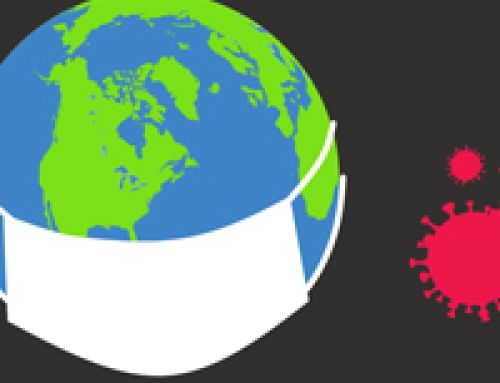[VIDEO] NetIP Conference – Breaking The Mold Panel
NetIP Conference SF – Dare To Be You: Jasbina Ahluwalia participates on the ‘Dare To Break The Mold’ panel with Rajiv Satyal & Ravi Kapur.
Female Announcer
(0:10): “Dare to Be You!” That was the inspirational theme for the 22nd Annual NetIP National Convention held in San Francisco.
Male Conference Host
(0:16): I will kick things off with some questions to maybe spur the conversation.
Female Announcer
(0:20): From continuing education workshops and panel discussions, to professional development, one could take their pick on how to spend their Labor Day weekend. One of the more popular ones was “Dare to Break the Mold” featuring comedian Rajiv Satyal, matchmaker Jasbina Ahluwalia, and Diya TV’s very own Ravi Kapur.
(0:44): I’m Jasbina Ahluwalia. I’m the founder of Intersections Match, which is the only personalized matchmaking and dating coaching company for Indian singles in the country. Welcome.
Ravi Kapur
(0:54): I’m Ravi Kapur. I’m the founder of Diya TV, which is the country’s first ever South Asian broadcast TV network. Think of us as Univision for the [1:03] market. We are 24/7 and free local in San Francisco, Chicago and Dallas.
We’ve been on in at Atlanta and in Chico Yuba City. The goal is to connect our community for the first time in mainstream America.
Rajiv Satyal
(1:16): I’m Rajiv Satyal. I’m a stand-up comic based in Los Angeles. I’m from Cincinnati, Ohio. I’ve been doing stand-up full-time for seven years, ten years total. I guess we’ll get to the rest of the details as we proceed.
(1:29): I guess I went the traditional career path for someone who’s going to be an entrepreneur, dating coach and matchmaker, which is law school! I spent a year in med school and studied Philosophy as an undergrad. I did some grad work in it.
I will say that I feel every one of those feeds into what I’m doing to some extent. I really think that life is this journey. It’s not necessarily point A to point B. It’s just choice points along the way, and you’re just kind of navigating them.
Rajiv Satyal
(2:01): Yes, I’d say that a lot of people go through what you’re saying right now, which is like, “I want to do something different, but what is it?” That’s fine, you’re a stand-up. That’s fine, you can sing. That’s fine, you know a lot about string theory.
“What’s my thing?” I think that’s the work I do. I don’t want to give it away right now, but I charge a lot for that. Uncovering your passion is hard.
(2:24): I guess I’m dove-tailing on what you said about finding your passion. Really look at your life and ask where you are in your element. Where are you in your zone? It doesn’t have to be anything career-wise. Go through your day-to-day and keep a log of it. Where’s my energy up? What really feeds me?
That’s going to help you figure it out. For you, it might be to keep your job and that might become one of your hobbies, or it could be your job. It can be funneled in all different ways. Some people feel they have to jettison what they’re doing entirely, and for some people it’s not entirely practical.
Ravi Kapur
(2:56): It’s one of those things where you do need the family support. You need your friends to understand what you’re up to. Pretty much every other member of my family is a doctor or a masters level something. They’re just absurdly intelligent. It’s very tough to justify making $10.50 an hour when you’re 30 years old. It’s really tough.
Unless you’re Katie Couric or Brian Williams, none of these other people are getting paid at all. It really is one of these passion plays and you really have to be into it. Hopefully, eventually you get good enough where you actually start to be compensated.
(3:33): I remember interviewing a family marriage therapist in the South Asian community. She was saying, “It’s amazing to me how many South Asians don’t ask each other certain questions that a lot of people do ask before getting married.”
The idea there is, “Oh, they’re South Asian. They have the same ideas about this or that.” I think we are actually a little bit more multi-dimensional than that. I really think these two on the panel exemplify that. Because we are more multi-dimensional, let’s give each other credit.
Let’s not assume what that one monolithic community is and that there’s one voice. We have a lot of different ways of expression. I think that’s really important to keep in mind.
Rajiv Satyal
(4:19): Look at immigration. What ends up happening with the society is so weird. Our parents tend to be very risk-averse people. My parents left India when they were 21 or 22, and traveled to the other side of the planet in the 70s to start a life here. What can be riskier than that? Nothing.
It’s interesting because it fosters this idea that our kids then shouldn’t take risks. They did. What ends up happening is society is built. It starts safe. People become doctors. Then engineers used to be considered a failure. You didn’t become a doctor. Now engineers are like doctors. Then there are lawyers and businesspeople. Entertainment, let’s be honest, I do believe it changes the world.
It is not necessarily like what a doctor is. People say, “You have the hardest job in the world.” I think, “No, Obama’s job is harder than mine.” A Navy Seal is probably harder than my job. It is that idea that it is spreading. Entertainment is the last part that it is going to reach, like entrepreneurship.
That’s happening as a natural consequence of time. The way that we can foster that is by supporting each other.
(5:35): It’s an interesting, different way of thinking. You’ll notice some of the things I’ve said in terms of progression, the choice points and the curving. For me, it is living your life in alignment with your values. I think goals come from your priorities and I think priorities come from your values.
You’re living in your alignment with that. For me, that’s my success. What I’m doing now is how I spend my time in terms of investing your time or wasting it. I like to invest my time. The best way for me to invest my time is in alignment with my values.
How I created the company I did, part of that was to accommodate that and to be able to impact people’s lives on a one-to-one basis. At the same time, I’m impacting my kid’s lives by being with them and spending time with them. For me, my angle is continuing along my path of just being clear that I’m living in alignment with my values at that given time.
_____
What do you think?
Would you like to add to the insights shared in video? Share your thoughts in the comments below.
_____
NetIP Conference SF – Dare To Be You: Jasbina Ahluwalia participates on the ‘Dare To Break The Mold’ panel with Rajiv Satyal & Ravi Kapur.
Female Announcer
(0:10): “Dare to Be You!” That was the inspirational theme for the 22nd Annual NetIP National Convention held in San Francisco.
Male Conference Host
(0:16): I will kick things off with some questions to maybe spur the conversation.
Female Announcer
(0:20): From continuing education workshops and panel discussions, to professional development, one could take their pick on how to spend their Labor Day weekend. One of the more popular ones was “Dare to Break the Mold” featuring comedian Rajiv Satyal, matchmaker Jasbina Ahluwalia, and Diya TV’s very own Ravi Kapur.
(0:44): I’m Jasbina Ahluwalia. I’m the founder of Intersections Match, which is the only personalized matchmaking and dating coaching company for Indian singles in the country. Welcome.
Ravi Kapur
(0:54): I’m Ravi Kapur. I’m the founder of Diya TV, which is the country’s first ever South Asian broadcast TV network. Think of us as Univision for the [1:03] market. We are 24/7 and free local in San Francisco, Chicago and Dallas.
We’ve been on in at Atlanta and in Chico Yuba City. The goal is to connect our community for the first time in mainstream America.
Rajiv Satyal
(1:16): I’m Rajiv Satyal. I’m a stand-up comic based in Los Angeles. I’m from Cincinnati, Ohio. I’ve been doing stand-up full-time for seven years, ten years total. I guess we’ll get to the rest of the details as we proceed.
(1:29): I guess I went the traditional career path for someone who’s going to be an entrepreneur, dating coach and matchmaker, which is law school! I spent a year in med school and studied Philosophy as an undergrad. I did some grad work in it.
I will say that I feel every one of those feeds into what I’m doing to some extent. I really think that life is this journey. It’s not necessarily point A to point B. It’s just choice points along the way, and you’re just kind of navigating them.
Rajiv Satyal
(2:01): Yes, I’d say that a lot of people go through what you’re saying right now, which is like, “I want to do something different, but what is it?” That’s fine, you’re a stand-up. That’s fine, you can sing. That’s fine, you know a lot about string theory.
“What’s my thing?” I think that’s the work I do. I don’t want to give it away right now, but I charge a lot for that. Uncovering your passion is hard.
(2:24): I guess I’m dove-tailing on what you said about finding your passion. Really look at your life and ask where you are in your element. Where are you in your zone? It doesn’t have to be anything career-wise. Go through your day-to-day and keep a log of it. Where’s my energy up? What really feeds me?
That’s going to help you figure it out. For you, it might be to keep your job and that might become one of your hobbies, or it could be your job. It can be funneled in all different ways. Some people feel they have to jettison what they’re doing entirely, and for some people it’s not entirely practical.
Ravi Kapur
(2:56): It’s one of those things where you do need the family support. You need your friends to understand what you’re up to. Pretty much every other member of my family is a doctor or a masters level something. They’re just absurdly intelligent. It’s very tough to justify making $10.50 an hour when you’re 30 years old. It’s really tough.
Unless you’re Katie Couric or Brian Williams, none of these other people are getting paid at all. It really is one of these passion plays and you really have to be into it. Hopefully, eventually you get good enough where you actually start to be compensated.
(3:33): I remember interviewing a family marriage therapist in the South Asian community. She was saying, “It’s amazing to me how many South Asians don’t ask each other certain questions that a lot of people do ask before getting married.”
The idea there is, “Oh, they’re South Asian. They have the same ideas about this or that.” I think we are actually a little bit more multi-dimensional than that. I really think these two on the panel exemplify that. Because we are more multi-dimensional, let’s give each other credit.
Let’s not assume what that one monolithic community is and that there’s one voice. We have a lot of different ways of expression. I think that’s really important to keep in mind.
Rajiv Satyal
(4:19): Look at immigration. What ends up happening with the society is so weird. Our parents tend to be very risk-averse people. My parents left India when they were 21 or 22, and traveled to the other side of the planet in the 70s to start a life here. What can be riskier than that? Nothing.
It’s interesting because it fosters this idea that our kids then shouldn’t take risks. They did. What ends up happening is society is built. It starts safe. People become doctors. Then engineers used to be considered a failure. You didn’t become a doctor. Now engineers are like doctors. Then there are lawyers and businesspeople. Entertainment, let’s be honest, I do believe it changes the world.
It is not necessarily like what a doctor is. People say, “You have the hardest job in the world.” I think, “No, Obama’s job is harder than mine.” A Navy Seal is probably harder than my job. It is that idea that it is spreading. Entertainment is the last part that it is going to reach, like entrepreneurship.
That’s happening as a natural consequence of time. The way that we can foster that is by supporting each other.
(5:35): It’s an interesting, different way of thinking. You’ll notice some of the things I’ve said in terms of progression, the choice points and the curving. For me, it is living your life in alignment with your values. I think goals come from your priorities and I think priorities come from your values.
You’re living in your alignment with that. For me, that’s my success. What I’m doing now is how I spend my time in terms of investing your time or wasting it. I like to invest my time. The best way for me to invest my time is in alignment with my values.
How I created the company I did, part of that was to accommodate that and to be able to impact people’s lives on a one-to-one basis. At the same time, I’m impacting my kid’s lives by being with them and spending time with them. For me, my angle is continuing along my path of just being clear that I’m living in alignment with my values at that given time.
_____
What do you think?
Would you like to add to the insights shared in video? Share your thoughts in the comments below.
_____





